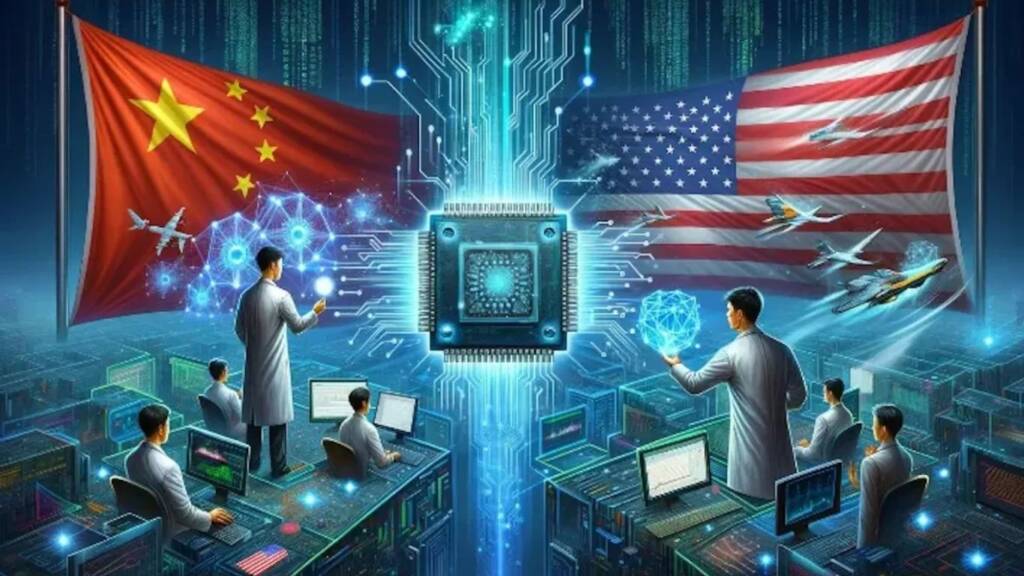Chinese startup DeepSeek’s launch of its latest AI models has triggered a shock wave worldwide. Reports are flooding about its technological advancement, and experts are mentioning that it is better than industry-leading models in the US. At a fraction of the cost, it is threatening to upset the technology world order.
The company attracted attention in global AI circles after it was published in a paper last month that the training of DeepSeek-V3 required less than $6 million worth of computing power from Nvidia H800 chips.
The quality and cost efficiency of China’s DeepSeek models has sent a chill through the US stock market initiating a massive selloff led by Nvidia and hitting billionaires where it hurts—their fortunes.
Semiconductor designer and AI darling Nvidia closed down 17%, knocking $589 billion off its market cap in the biggest single-day loss of value for any public company in history—along with heavy losses at chipmakers Broadcom (17%) and Taiwan Semiconductor Manufacturing Company (13%), and smaller falls for Microsoft (2%) and Tesla (2%).
Technologically, the model is considered to be better than OpenAI. Even, OpenAI CEO Sam Altman praised DeepSeek’s R1 saying it is an “impressive model, particularly around what they’re able to deliver for the price.” The DeepSeek mobile app became the No. 1 app in iPhone stores in Australia, Canada, China, Singapore, the US and the UK. One thing that distinguishes DeepSeek from competitors such as OpenAI is that its models are “open source” — meaning key components are free for anyone to access and modify, though the company hasn’t disclosed the data it used for training. However, the key component of OpenAI is not free.
AI Rivalries at Play
Technology is a tool to spread nations’ soft and hard power. It helps to control perceptions and misperceptions around the world which have extensive effects on diplomacy and foreign policy. For example, if someone is asking a question related to the Russia-Ukraine War to OpenAI, the person will clearly see a bias towards Ukraine putting Russia in a bad light. In the same way, if someone asks DeepSeek to write criticism of leaders like Donald Trump, Narendra Modi and Putin, it writes bashing criticisms but if you give the same command to know Chinese leader Xi Jinping criticism, it shows “Sorry, that’s beyond my current scope. Let’s talk about something else.”
It means these advanced tools are not only being used for effective work, educational purposes, saving time and creating things but can also be used to control perceptions and data. This leverage can be used in pursuing foreign policy, geopolitical games and influencing people around the world, necessary for political games on the world stage. Panic in the US techs, businessmen and leaders underscores the importance of 21st-century technology in the form of AI.
Nonetheless, technological advancement has always been a part of geopolitical rivalry. This new advanced AI has sent global and technological shock waves. Despite the best efforts of the US to slow down Chinese AI advancement by blocking high-tech chip exports in recent years, the sudden advancement in the form of startup DeepSeek’s new launch has put the US on the back foot.
AI technologies have proved effective in navigation, communication and providing high-quality work to society, and the race to gain advanced AI technologies has been a new domain of geopolitical dominance. Hence, geopolitically this event has spread a sense of fear, competition and rivalry in the US, one of the most advanced nations when it comes to technology.
On its part, the US has announced major investment of 500 million dollar in the field just after the Trump inauguration. Still, the US feel a sense of fear after DeepSeek’s launch AI model highlights their commitment to being the top technological country.
China and the US are now in a direct competition in all spheres — AI, artificial sun, next-gen fighter jets, to name a few — to prove their dominance as other powerhouse nations are playing catch up.
Against this backdrop, Indian PM Modi’s recent visit to France to co-lead the global AI summit gains greater significance. While the global initiative highlights the commitment by many nations to up their ante and take a lead on the technology’s regulation aspect, the launch of chatbots by US and China, puts the onus on other nations, to develop their own advance tech and to drastically scale up the efforts in AI sphere or be left far behind in the new age tech race.
